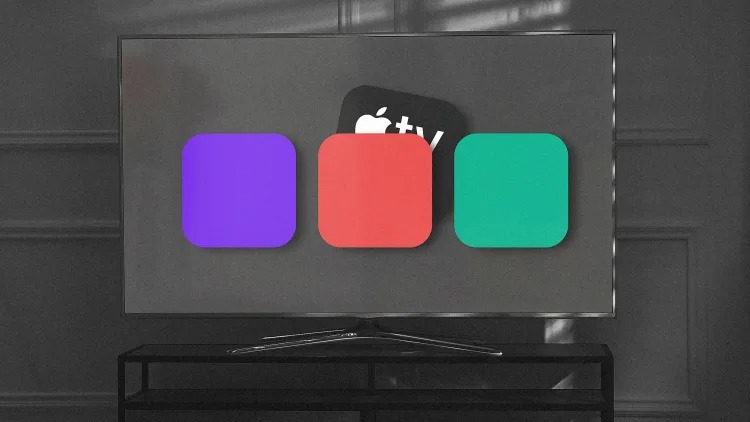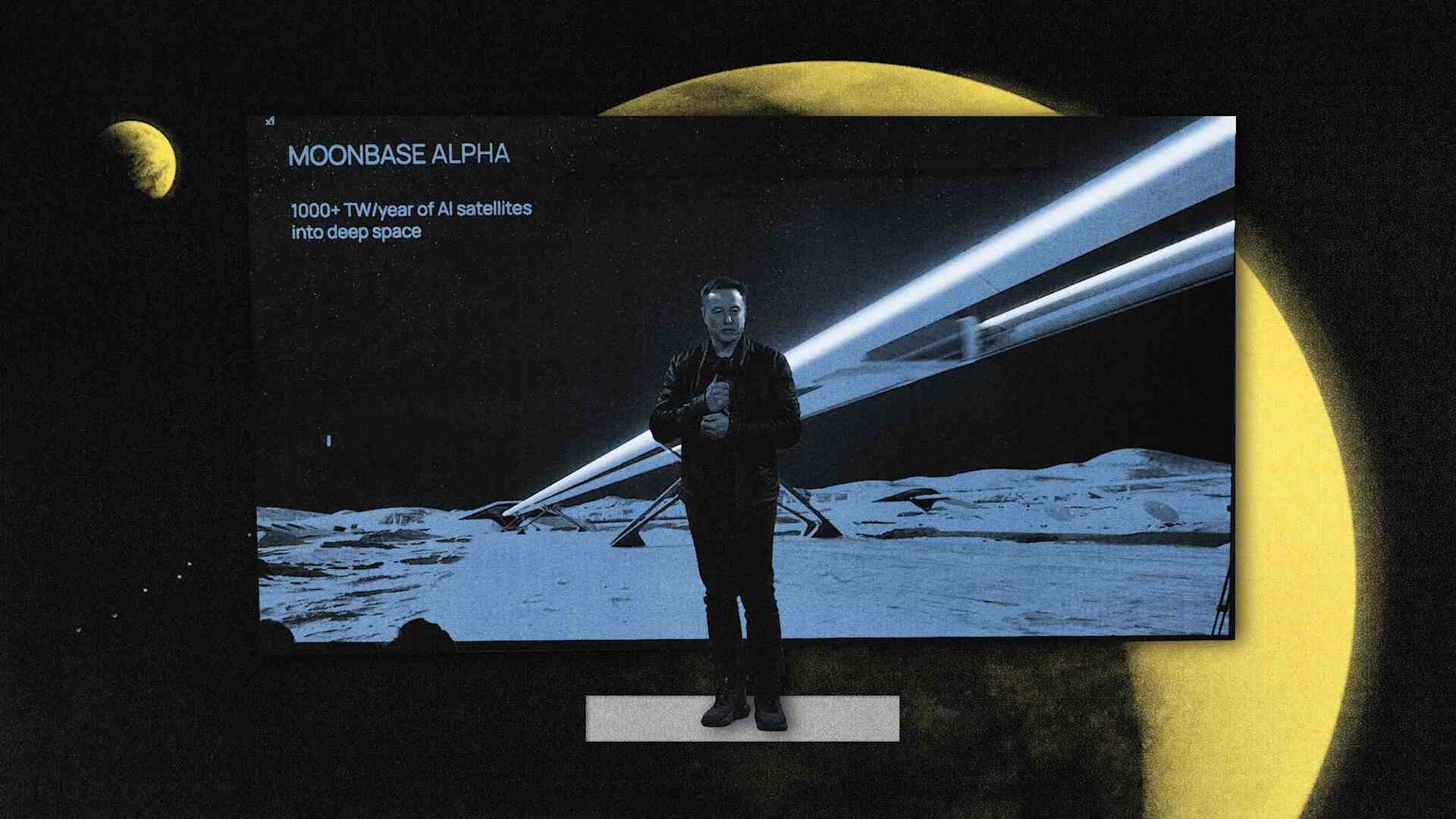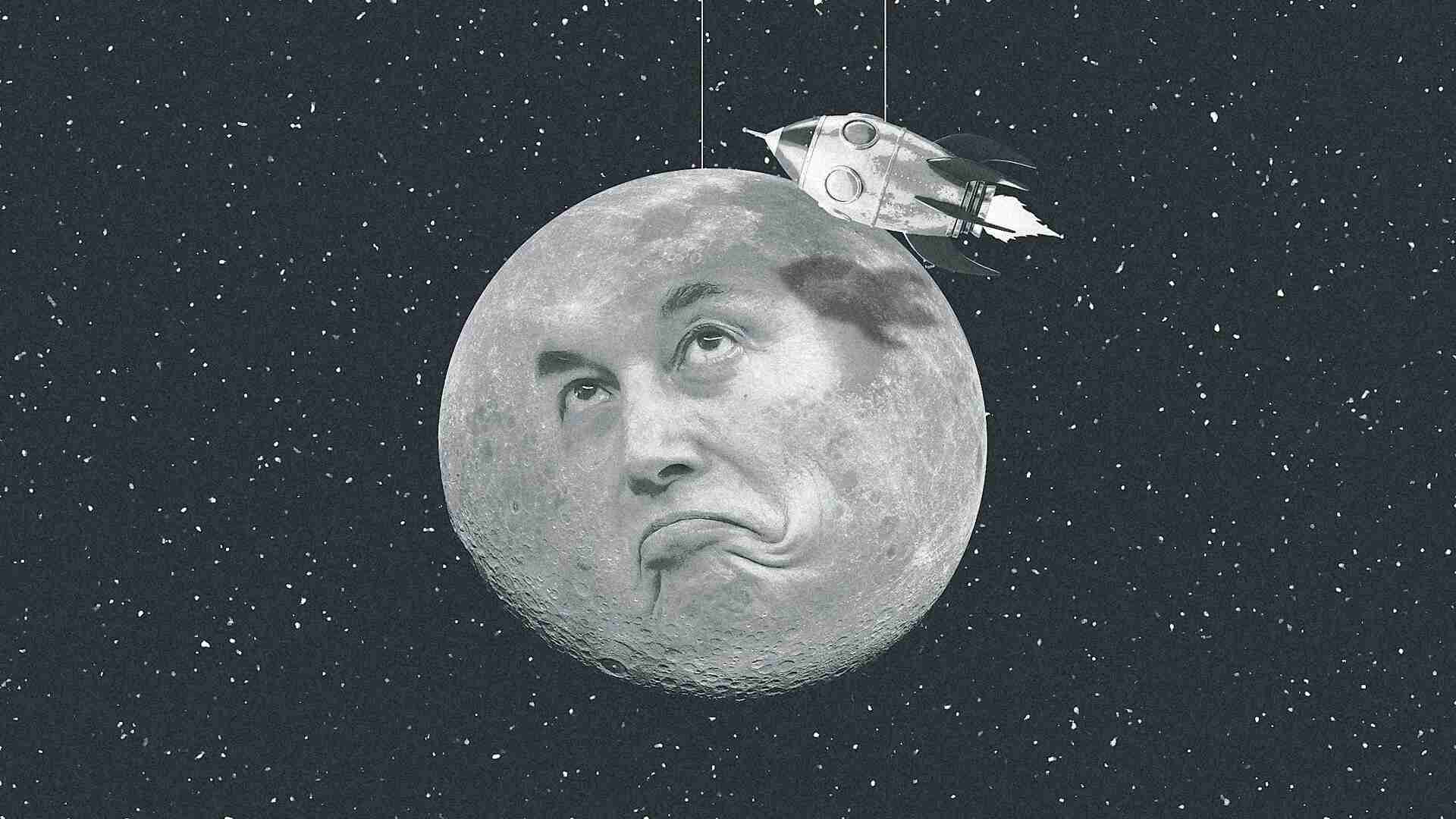- | 8:00 am
Why is Apple so bad at marketing its TV shows?
The shows on Apple TV+ boast some of the top stars working today on both sides of the camera. Imagine how popular those shows would be if more people actually knew about them.

The brain-meltingly spicy chicken-wings-endurance talk show, Hot Ones, has been a staple of promotional tours for years. Over the summer, a 2022 clip of Maya Rudolph going into third-degree spice-shock on the show went viral once again. It was just the kind of boost her Apple TV+ series Loot needed in its second season. The only problem? Many of the people commenting on the clip didn’t realize Rudolph had not actually been on Hot Ones, but that her character on Loot had. Many didn’t even seem to realize a show called Loot existed at all.
Rudolph did a lot of press for the series and earned an Emmy nod for her performance in its second season. Loot has since been renewed for a third. But no promotional moment supporting the show seems to have generated as much interest or awareness over time as the Hot Ones bit that Loot’s creators put in a 2022 episode. Meanwhile, promising new shows like Disclaimer, from director Alfonso Cuarón and star Cate Blanchett, receive little prerelease fanfare. It’s just more evidence that Apple TV+’s ability to make content that people enjoy far outpaces its ability to market that content.
Judging from recent events, however, the streaming service can no longer afford to not put more resources into its marketing strategy.
“Nobody’s watching them”
Ever since its launch in 2019, Apple TV+ has been carving out an identity as the new home for prestige shows from some of Hollywood’s biggest names—the kind of shows that sound natural coming out of Jimmy Kimmel’s mouth in monologue jokes at the Emmys. While the company never provides spending details, Apple is estimated to have spent at least $20 billion recruiting the likes of Reese Witherspoon, M. Night Shayamalan, and Harrison Ford to help cultivate its award-worthy sheen. For all the effort Apple has expended, and for all the cultural excitement around Ted Lasso during its three-season run, the streaming service has won nearly 500 Emmys . . . while attracting just 0.2% of total TV viewing in the U.S.
No wonder the company reportedly began reining in its spending spree recently. (Apple did not reply to a request for comment.)
“It seems like Apple TV wants to be seen as a platform that’s numbers-agnostic,” says Ashley Ray, comedian, TV writer, and host of the erstwhile podcast TV I Say. “They wanna be known for being about the creativity and the love of making TV shows, even if nobody’s watching them.”
The experience of enjoying a new Apple TV+ series can often be a lonely one. Adventurous subscribers might see an in-network ad about something like last summer’s Sunny, the timely, genre-bending Rashida Jones series about murderous AI, and give it a shot—only to find that nobody else is talking about it in their social media feeds or around the company Keurig machine. Sure, the same could be said for hundreds of other streaming series in the post-monoculture era, but most streaming companies aren’t consistently landing as much marquee talent for such a limited library. (Apple currently has 259 TV shows and films compared to Netflix’s nearly 16,000.)
How is it possible for a streaming service to have as much high-pedigree programming as Apple TV+ does and so relatively few viewers, despite an estimated 25 million paid subscribers? How can shows starring Natalie Portman, Idris Elba, and Colin Farrell launch and even get renewed without ever quite grazing the zeitgeist? How does a show set in the same Monsterverse as Godzilla vs. Kong, and starring Kurt Russell and his roguishly charming son, not become a monster-size hit?
For many perplexed observers, the blame falls squarely on Apple’s marketing efforts, or seeming lack thereof.
Apple TV+’s marketing conundrum
One of the stranger elements about the streaming service acquiring a reputation for under-marketing its shows is that Apple has long been known as an innovative, practically irresistible, marketing powerhouse. (That recent iPad “crush” ad is the exception, not the rule.) Still, even from the beginning, the company has never applied an Apple level of innovation, let alone funding, toward making its streaming titles into household names. According to the New York Times, Apple spent $19.9 million on TV ads to promote its $9.99-a-month streaming service in the month leading up to its 2019 launch. That’s about half the amount it spent the same month on TV ads for the iPhone, its biggest source of revenue.
A couple years later, the company seemed to understand the need to beef up Apple TV+’s marketing apparatus further, announcing plans to spend more than $500 million on fresh efforts. Since then, there has been an uptick in outdoor billboards, TV spots, a presence at live events like San Diego’s Comic-Con, and an overall push beyond banners and notifications within the Apple ecosystem. As the ongoing low-viewership attests, though, those efforts are still not quite connecting.
It’s difficult to diagnose just what Apple isn’t doing that other networks are, without having comparable internal data. Perhaps comparing it to other streaming services, though, is beside the point.
“We are all still really unclear what the purpose of Apple TV+ is,” says Amanda Lotz, a media scholar, professor, and industry consultant. “Mostly, it’s to have something to bundle with other things to compel Apple tech buyers to also pay Apple a monthly subscription fee. Thus, all the logistics of how actual streaming services that have a business based on having to compel people to watch—either so they pay or can be sold to advertisers—aren’t fully relevant to Apple.”
In other words, Apple TV+ feels more like the free hat a Ferrari dealership throws in for buying one of its souped-up sports cars rather than being the souped-up sports car itself. The company literally gives away free three-month trials with the purchase of every iPhone.
A “walled garden”
Considering the emphasis on Apple’s brand over that of each show, perhaps the lack of full-on marketing blitzes for any given series is intentional. Apple made a bold choice by slow-building its streaming library from the ground up, rather than licensing beloved titles for instant enticement. The company’s grand design for the service might involve subscribers happily stumbling upon a private Narnia-closet of Apple-branded series from Hollywood heavyweights, rather than seeking out any one show. Perpetual, accidental discovery.
In order to discover a new show within a streaming service, though, you have to already be there in the first place—ideally, often.
“In the pre-streaming age, almost all marketing happened right on the channel, and you could count on viewers seeing that promotion because they watched it so regularly,” Lotz says. “Now our attention is spread across so many places that viewers need the service and the content further marketed to them.”
Indeed, a lot of Netflix viewers tend to learn about its latest shows because the algorithm concludes which ones seem up their alley and advertises those on the landing page. But Apple TV+ has a fraction of Netflix’s subscribers, and a fraction of its content. Unless it’s the only streaming option in the household, viewers seem far more likely to deliberately visit Apple TV+ for a specific show, rather than be there already fishing around to find something that suits the mood.
“Apple is all about the walled garden with their devices that are only compatible with each other, and they’re bringing that idea to television,” Ray says. “Their shows feel very closed off within Apple TV, and if you’re not about Apple and not about Apple TV, you’re not watching them, you don’t know about them, and you have to come inside the club to hear about any of it.”
Gone before you’ve heard of it
Up until now, whether through deliberate strategy or the indifference of a company with a $3.5 trillion market cap, Apple TV+ has quietly coasted along as a frequent Emmy contender with an overabundance of high-quality shows that have escaped mass attention. The streaming service seemed so desirous of building its own deep library, Apple renewed the majority of its shows for multiple seasons, whether an audience had materialized yet or not. Even the Cecily Strong-led musical comedy Schmigadoon, which seems engineered in a lab exclusively for theater kids, got two seasons before concluding last year.
Those days seem to be ending, though.
The latest sign of this is the swift cancellation of Time Bandits, a comic-fantasy series created by Taika Waititi and Jemaine Clement, starring Lisa Kudrow. The series, based on the classic Monty Python-adjacent film, premiered in late July, concluded in late August, and was axed less than a month later. Given that truncated timeline, would-be viewers could be forgiven if the cancellation announcement was their first time hearing about the show.
Interestingly, Netflix has also been earning the ire of subscribers for hair-trigger cancellations—such as the recent shuttering of the Greek mythology-update series, Kaos, starring Jeff Goldblum, after less than six weeks. But at least Netflix has the market share and massive catalog to endure its fans’ frustrations. Apple TV has more to risk by telegraphing to viewers it’s trying to lure in that they needn’t bother getting too attached to new shows.
“If you’re a fan of a show on Apple TV,” says Ray, “you have this fear that it’s not being appreciated, it’s not being seen, and you have to tell people about it because the platform itself isn’t going to do it.”
Now, that fear appears to have a ticking clock hanging over it.
The feeling of stumbling across a show that seems designed just for you is incompatible with the urgency of having to evangelize that show, right now or else. If Apple continues axing shows that don’t pop immediately, it’s going to be as hard or harder to convince big names to keep making them as it is to convince potential viewers to watch them.
But the only thing that makes less sense than spending millions on a show only to cancel it less than a month later, is not promoting the hell out of it in between.







































